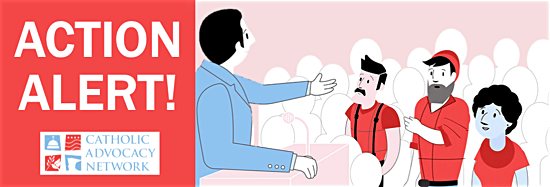Minnesota is ranked the second-best state in the nation overall (after Iowa). This is according to new overall state rankings by U.S. News and World Report, which are based on more than 75 metrics including economy, education, opportunities and quality of life.
However, it’s not great for every Minnesotan. Not all of us have the same opportunities or quality of life.
In 2009, Minnesota released the bipartisan Legislative Report from the Commission to End Poverty in Minnesota by 2020. The report set forth specific goals and contained numerous recommendations.
As we approach 2020, Minnesotans of faith need to take a hard look at our progress in addressing poverty and the commission’s recommendations. The Joint Religious Legislative Coalition — composed of Catholics, Protestants, Jews and Muslims from across the state — has just issued “Poverty in Minnesota: A Progress Report.”
More than half a million Minnesotans (including more than 160,000 children) live in households below the federal poverty threshold — $20,780 for a family of three. Ten percent of Minnesota households are impacted by hunger.
Many communities have a severe shortage of affordable housing. The rate of homelessness for adults over age 55 increased by 8 percent over the past five years. When looking for work, many Minnesotans face barriers including a lack of education, mental health issues, addiction or a criminal conviction. The disparities between white Minnesotans and Minnesotans of color are substantial — in income, home ownership rates and academic success.
We can do better.
The poverty progress report addresses areas in which public policy directly impacts poverty. Our laws are a blueprint for our state. There are many approaches to addressing these issues, and elected officials might have different ideas about how to address them. But all elected officials care about Minnesotans living in poverty and want them to be successful.
Each of us can directly impact policies. Call and email your elected officials. Attend town hall meetings and ask your representatives how they are helping Minnesotans in poverty. Come to the Capitol and meet with them personally. Tell them what you see in your congregation and community.
Our call
As Catholics, we are called to help the poor and vulnerable. St. James reminds us, “If one of the brothers or one of the sisters is in need of clothes and has not enough food to live on, and one of you says to them, ‘I wish you well; keep yourself warm and eat plenty’ without giving them the bare necessities of life, then what good is that?”
We know the Lord hears the cry of the poor. We, too, need to listen. Many of you are responding to God’s call for help by serving families experiencing homelessness or people in need of food or clothing. These are all worthy acts of charity. But can we do more?
Pope Francis has said that politics “is one of the highest forms of charity, because it serves the common good.” In the public arena, we can complement our charitable and philanthropic efforts by also working to promote distributive and social justice. Our faith challenges us to be advocates for those struggling and on the margins.
The first step is to become informed. Talk to your neighbors about poverty. Visit a food shelf or emergency shelter and listen to the stories of the people there. Then call your senators, representatives and county commissioners. Ask candidates for office what legislation they are pursuing to address poverty.
This Easter season, as we live out our baptism, let us show gratitude for the gifts we have received and remember to use them to help our brothers and sisters.
Krisnik is executive director of the Joint Religious Legislative Coalition, an interfaith anti-poverty advocacy organization co-sponsored by the Minnesota Catholic Conference.
Work to end poverty
Many Minnesotans continue to struggle with poverty, food insecurity, obtaining a quality education and securing affordable housing. Review “Poverty in Minnesota: A Progress Report” at jrlc.org. Consult your elected officials about what they are proposing to combat poverty and economic insecurity. You can find your legislators at mncatholic.org or by visiting leg.state.mn.us and clicking on the tab “Who represents me?”




